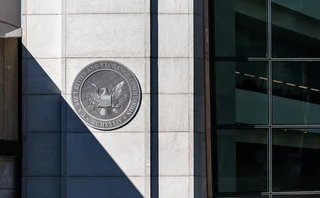
S&P creates ombudsman role
In an effort to "strengthen its ratings process, increase transparency and better serve capital markets", rating agency Standard & Poor's has appointed Ray Groves to the newly created position of ombudsman, effective February 16.
He will report directly to Harold McGraw, chief executive of The McGraw-Hill Companies, S&P's parent, and be accountable to the audit committee of the board of directors.
"Both the markets and our own employees expect the highest standards of independence, quality and transparency; the office of the ombudsman will provide another way for S&P to meet these expectations," remarked McGraw.
Groves worked for 37 years at E&Y, serving as chief executive for 17 years until retiring in 1994. Subsequently, he was chairman of Legg Mason Merchant Banking from 1995-2001, and chairman of insurance broker and risk advisory Marsh from then until 2005. He sits on the board of Boston Scientific, Group Ark Insurance and the Colorado Physicians' Insurance Company.
The move to hire Groves comes in the wake of intense regulatory scrutiny over the role of rating agencies in the financial crisis. Agencies came under heavy fire for assigning AAA ratings to subprime mortgage-backed securities and collateralised debt obligations with subprime exposure - products that subsequently experienced mass downgrades and resulted in huge losses.
On December 3, the US Securities and Exchange Commission voted in favour of new rules designed to reduce conflicts of interest in the ratings process. The rules included a condition that agencies will no longer be allowed to rate securities if they advised on the structuring, while no staff involved in developing rating methodologies will be allowed to participate in fee negotiations.
Meanwhile, the European Commission on November 12 outlined its own formal proposal to regulate rating agencies, which is now going through the legislative process. If passed, agencies will no longer be allowed to provide advisory services or rate products if they do not have sufficient quality information.
See also: EC outlines proposal to regulate rating agencies
SEC votes to tighten rules on rating agencies
Only users who have a paid subscription or are part of a corporate subscription are able to print or copy content.
To access these options, along with all other subscription benefits, please contact info@risk.net or view our subscription options here: http://subscriptions.risk.net/subscribe
You are currently unable to print this content. Please contact info@risk.net to find out more.
You are currently unable to copy this content. Please contact info@risk.net to find out more.
Copyright Infopro Digital Limited. All rights reserved.
As outlined in our terms and conditions, https://www.infopro-digital.com/terms-and-conditions/subscriptions/ (point 2.4), printing is limited to a single copy.
If you would like to purchase additional rights please email info@risk.net
Copyright Infopro Digital Limited. All rights reserved.
You may share this content using our article tools. As outlined in our terms and conditions, https://www.infopro-digital.com/terms-and-conditions/subscriptions/ (clause 2.4), an Authorised User may only make one copy of the materials for their own personal use. You must also comply with the restrictions in clause 2.5.
If you would like to purchase additional rights please email info@risk.net
More on People
People: You’re fired! US agency rejig, new CROs at ING, StanChart, and more
Latest job changes across the industry
SocGen’s PB clearing head departs for SwapAgent role
Jamie Gavin takes external consulting role for LSEG’s non-cleared swaps platform
Robertson leaves Barclays’ prime services in New York
Head of prime derivatives services unit departs after seven years with the bank for Carbon Point
Citadel Securities hires former Eisler CRO
Pregnell joins market-maker after demise of hedge fund
People: Fishwick hands over BlackRock CRO role, Citi expands Asia FX team, and more
Latest job changes across the industry
Nomura shuffles risk methodology team
Epperlein takes advisory role six months after Japanese bank’s FRTB IMA go-live
Andy Ross leaves StanChart
CurveGlobal veteran confirms his departure as bank’s global head of prime brokerage
People: BofA’s new markets heads, Barclays takes SG’s Mastrangelo, and more
Latest job changes across the industry







